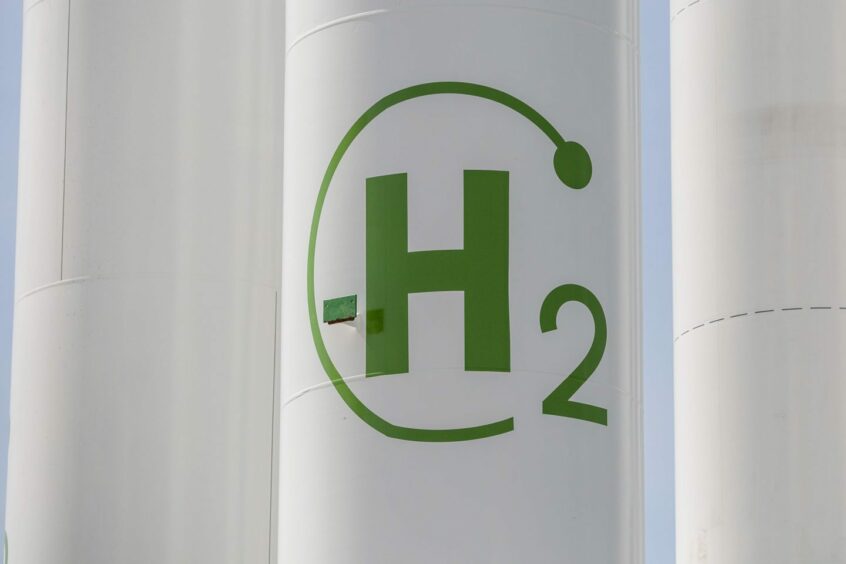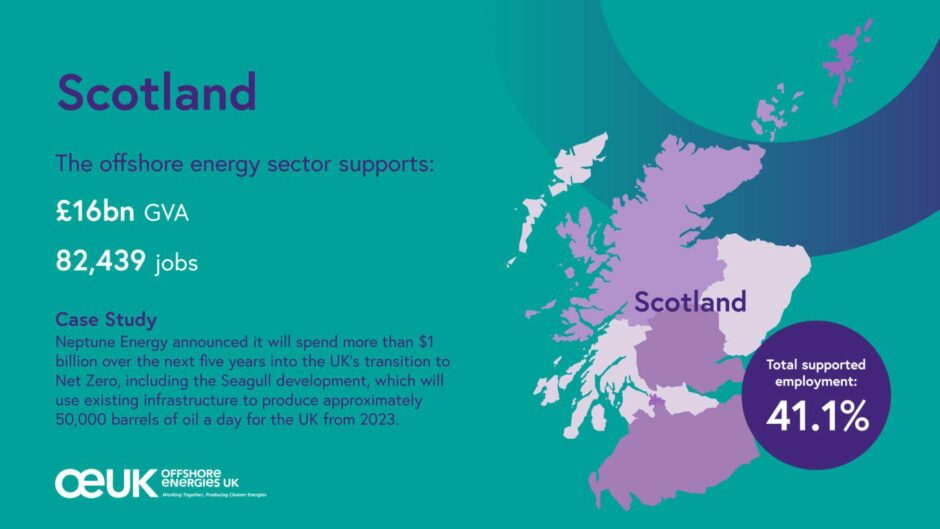 © Equinor
© Equinor A trio of emerging low carbon technologies could generate almost 30,000 new UK jobs by 2030, according to research by Robert Gordon University (RGU).
But the findings come with a warning from trade body Offshore Energies UK (OEUK) about the impact of the divisive windfall tax on companies’ ability to invest.
CCS, hydrogen, electrification
RGU’s Energy Transition Institute looked at the potential benefits of three emerging technologies; carbon transport and storage, hydrogen, and offshore electrification.
It found that they could employ up to 26,000 additional people – 15% of the entire offshore industry’s workforce – by the end of the decade.
Many of those jobs would be in declining coastal communities, stretching from East Anglia, all the way up to the north-east of Scotland.
Windfall tax a spanner in the works
Despite the optimistic predictions from RGU, OEUK has urged caution due to the impacts of the soon to be approved energy profits levy (EPL).
The policy, designed to help with the cost-of-living crisis, hands 65% of the profits from offshore oil and gas extraction to the Treasury.
OEUK, which commissioned the research under the North Sea Transiton Deal (NSTA), has been a vocal opponent and critic of the levy.
Katy Heidenreich, director of supply chain and operations at the trade body, believes expenditure on electrifying offshore platforms will be most impacted by the windfall tax.
But all three rely on offshore operators having the cash and “confidence to invest in UK energy”.
She said: “This study shows that the offshore energy workforce in the UK is at the heart of the energy transition. The North Sea Transition Deal has the potential to harness the expertise of our oil and gas workforce to realise the cleaner energies that will help us reach our climate goals. However, the new Energy Profits Levy proposed by the UK government does threaten to undermine this.
Jobs potential ‘at risk’
“Prioritising energy produced here in the UK will help ensure we have reliable supplies of energy now as well as lower carbon energy in future. It will help provide affordable energy to millions of households, secure tens of thousands of jobs in industrial heartlands across the country and support the UK economy.
“This potential is now at risk, as investors grapple with the UK Government’s unexpected levy on the sector. To achieve the best possible outcome outlined in this study, the UK offshore energy industry needs an environment that encourages investment and acknowledges our continued need for oil and gas as new lower carbon developments and technologies come online.
“More than ever, we need long-term thinking and a political and investment environment that is predictable and stable.”
North Sea Transition Deal
RGU looked at three investment scenarios to work out how many jobs the NSTD, a pact between industry and government, might create by 2030.
It found that if the UK Government’s recently published British Energy Security Strategy targets were met then, by 2030, the UK would be storing 30 million tonnes of CO2 underground each year.
As many as 10 gigawatts of hydrogen would also be being produced, and there would be 10 offshore oil or gas platforms running on low carbon electricity.
People working on hydrogen production, CO2 transport and storage, and electrification projects could total up to 26,000.
More than £14 billion would also be invested in UK-based offshore activities across the timeframe.
Professor Paul de Leeuw from Robert Gordon University (RGU) and the review’s lead author said: “The energy transition will provide exciting and new opportunities for the UK offshore energy workforce. It will be critical to equip that workforce with the skills needed for the jobs of the future and to ensure a coordinated, just and fair transition. The RGU review highlights a potential prize of up to 26,000 additional jobs by 2030. Successful delivery of this prize will depend on the industry’s ability to develop and deliver the new low carbon projects required over the remainder of this decade.”
Plenty more where that came from
RGU added that the NSTD is likely to create “many more jobs” outside the scope of offshore industries, such as CO2 capture, construction and exports of UK technology and expertise.
The Energy Security Bill, published by the government last week, included a factsheet which claimed CCS could support up to 50,000 domestic jobs by 2030.
The RGU research predated the EPL, the potential knock on effects of which are not captured in the study.
Alix Thom, OEUK’s workforce manager, who leads on the People and Skills elements of the NSTD, said: “Oil and gas companies are leading the UK’s move towards cleaner energies. Our study gives the UK’s oil and gas industry supply chain the insight it needs to plan ahead – but this is all based on the UK maintaining a stable and predictable tax regime.”





